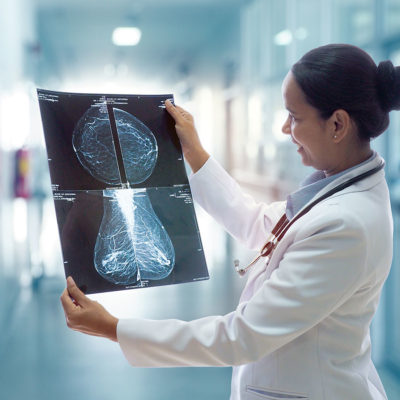The combination of few treatment options and the aggressive nature of triple-negative breast cancer (TNBC) results in a higher recurrence and mortality rate. Research from the NRI seeks to understand TNBC mechanisms with the goal of directing development of treatments.
Aging and obesity are associated with increased risk of TNBC. The Hursting laboratory (Smith et al., 2022) showed that both risk factors act through convergent inflammatory and immune-related responses by promoting immunosuppressive signaling, which could contribute to accelerated tumor progression. These results suggest potential targets for future chemotherapeutic development and highlight the need to account for age and/or obesity when treating TNBC.
The high-dose chemotherapy used to treat TNBC often has severe side effects. Certain food compounds like polyphenols (sources include berries, dark chocolate and tea) and omega-3 polyunsaturated fatty acids (PUFAs) high concentrations are found in flax seeds, walnuts, and fish such as salmon and trout) have shown promise as chemosensitizers in TNBC treatment. The Rushing and Sumner laboratories (Rushing et al., 2023) used a metabolomics approach to identify cellular pathways through which polyphenols and PUFAs impact chemosensitivity. The results of their research could facilitate development of TNBC treatment options with fewer side effects.

